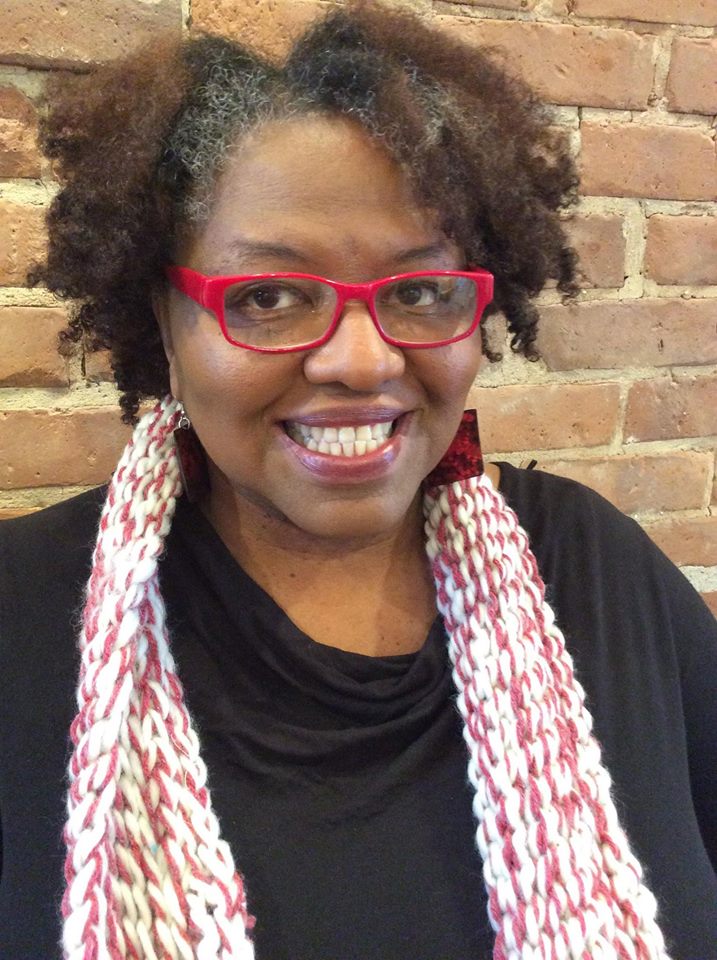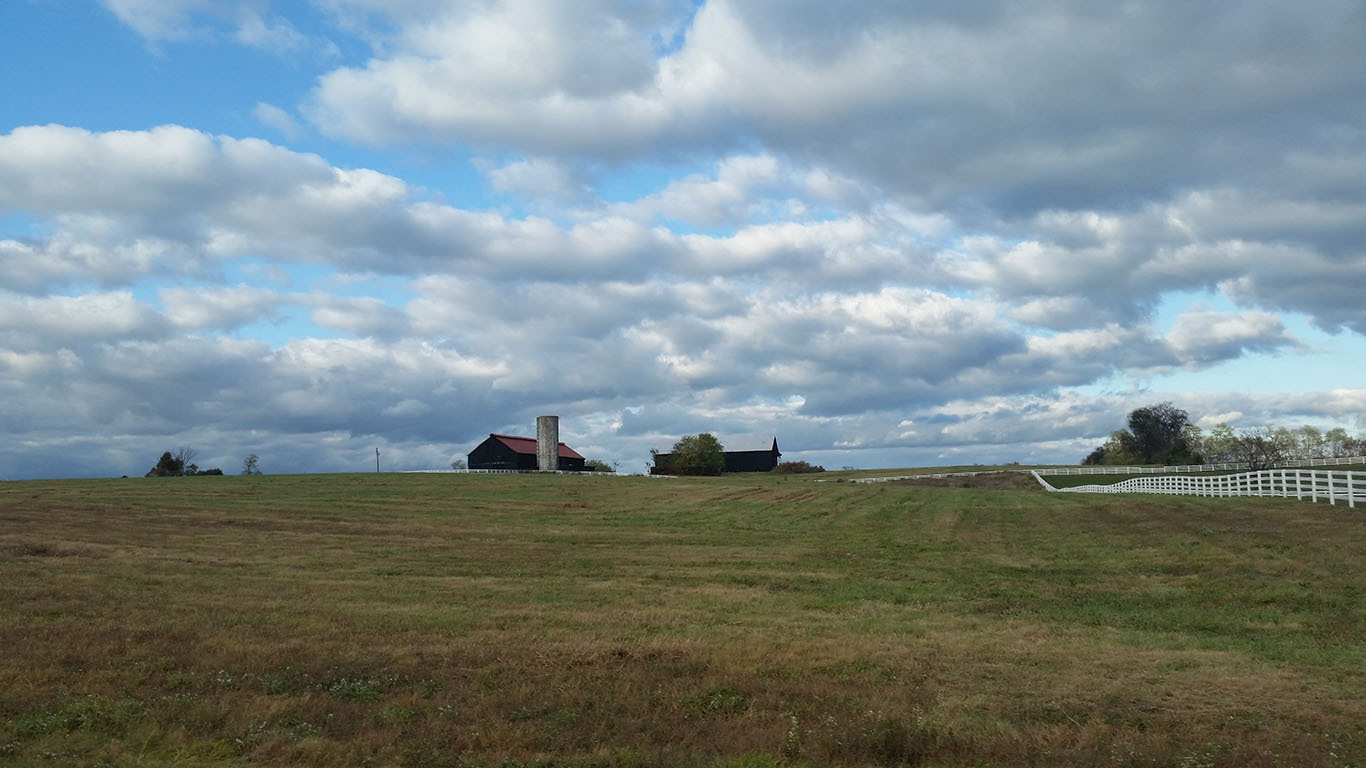
185
Downloads
5
Episodes
From Pine Mountain to the New Madrid Fault and every pocket of beautiful land in between, each month, we talk to one of the many Kick-Ass Kentucky Women Writers you should know and love.
From Pine Mountain to the New Madrid Fault and every pocket of beautiful land in between, each month, we talk to one of the many Kick-Ass Kentucky Women Writers you should know and love.
Episodes

Saturday Mar 04, 2017
Crystal Wilkinson
Saturday Mar 04, 2017
Saturday Mar 04, 2017
Crystal Wilkinson kicks ass. …and wins awards for it.
Her first collection of stories, Blackberries, Blackberries, received the Chaffin Award for Appalachian Writing; her second, Water Street, which was a finalist for both The Orange Prize for Fiction and The Hurston-Wright Legacy Award.
Crystal’s latest book, The Birds of Opulence, just received the Ernest J. Gaines Award for Literary Excellence, the Weatherford Award for Fiction, and the Judy Gaines Young Book Award.
She is a founding member of the Affrilachian Poets, a professor in Spalding University’s Low Residency MFA program, and the Appalachian Writer-in-Residence at Berea College. Crystal is also the co-owner of The Wild Fig Books and Coffee, along with her partner Ron Davis.
I read Blackberries just after my mother died in 2001, when I was trudging through my one and only Indianapolis winter. I contemplating a move to Kentucky—where I hadn’t lived since I was in the first grade—and I wanted to see what kind of writing community would be awaiting me there. Having grown up in Appalachian Ohio, I was familiar with some of Kentucky’s more famous (or infamous) writers, like James Still, Bobbie Ann Mason, Hunter S. Thompson, and Gurney Norman, but not many beyond those. So it was through Crystal’s first book that I got my first look into the richness of contemporary Kentucky literature.
When I finished Blackberries, I immediately turned back to the front of the book and read it all again. Though I was not entirely a Kentuckian (but the eldest child of one), the characters and themes resonated with my life experience. I saw a younger version of myself, immersed in the magic of a country night, in characters like Javeda:
Many a night Javeda would like on her back and be lulled by katydids and whippoorwills speaking to one another in the pitch of the Casey Creek night. A cool breeze would rustle her nightgown and she would lie still and awake, paying close attention to the quiet of the darkness. The leaves rustling in the air like a woman’s skirt tail, the dampness of the night, the chirping of a far-off bird.
And I saw my own grief and struggle with deep depression in Bessie Purvis, who sat around waiting for the reaper most of her life, as those whom she loved most died all around her. But what I also saw in Crystal’s writing was the masterful crafting of characters, of families, of language, and of place, and it inspired me to write again after a year of death, displacement, and despair.
I first met Crystal in 2003, when she was teaching a writing workshop at Pine Mountain State Resort Park. I was eager to learn from her—and to get my hands on Water Street, which had been released not long before. Water Street brought me back to some of my favorite characters in Blackberries and introduced some more. By then, I was teaching writing and her work on character development and lyrical prose became a model that I studied and shared with my students.
Over the next decade, Crystal became an important mentor for me as I transitioned from a lyrical essayist to literary fiction writer. She’s taught me many lessons on writing craft and revision over the years in the classroom, and many others on what it means to be dedicated to writing while juggling all of the other things we have to do as mothers, providers, family, friends, and community members. When she says, “I am a writer who teaches, not a teacher who writes,” she reminds me to keep Frankie the Writer at the forefront of my identity and not to let it get lost in the fray. That is maybe the most important lesson I have ever learned as a writer, though it’s not always the easiest to apply.
During the past few years, I’ve heard Crystal read about the people of Opulence a handful of times. Each time, my breath was taken away, so I was one of the many people wedged in, elbow to elbow, to hear her read from The Birds of Opulence at The Wild Fig last fall for the book release. As Crystal read, we all leaned in—and when she stopped, we asked for more. I wasn’t alone that night in my wish that she wouldn’t stop reading until she’d read us the whole book.
When I went home to read The Birds of Opulence, I was once again floored by Crystal’s lyricism and imagery. It’s easy to get pulled into this family legacy, to eavesdrop on their lives, but some of their experiences are haunting and hard to read. The Goode-Brown family has a legacy of mental illness and violence. Whether the family member is mentally ill or their care-giver, and whether they are the perpetrator, victim, or bystander of an act of violence, they all are marked by it. A psychic stain hangs in the air, ghost-like, just out of reach for some and too close to bear for others.
The cover (drawn by Crystal’s partner, artist/poet Ron Davis) adds some insight into reading this family history. The sankofa bird stands with its feet facing forward and looking back over its shoulder, about to eat a seed. Traditionally, the sankofa is a reminder that, without understanding our past, we are unable to learn from it and move forward. We see some members of the Goode-Brown family looking back, but unable to move forward; others repeating history; others losing touch with the past as they escape into a new life; and paths in between.
Opulence is filled with characters who breathe, stand up, and speak directly to you. Once you meet them, you won’t forget them or the stories they tell.
I sat down with Crystal recently at The Wild Fig to chat about her books, storytelling, family patterns, and making sure we take time out of our lives to write. She also reads a few pieces from The Birds of Opulence.
So take a listen to the interview and afterward, stop by The Wild Fig to pick up one (or all) of Crystal’s books. You can find them at 726 North Limestone in Lexington. If you’re not in Lexington, they’ll ship them to you; just call (859) 252-3052.
Go in the morning and enjoy a breakfast paco (that’s pancake + taco!) and a locally-roasted coffee or one of their specialty drinks named after local writers. Or swing by later in the day to catch a reading, workshop, or other community event.
To see what’s a-cookin’ or a-happenin’, follow The Wild Fig on Facebook, Instagram, Twitter, and their website.
Want more?
- Read about The Wild Fig in The New York Times, then keep it local and another story in The Herald-Leader.
- Read “Dig if You Will the Picture,” Crystal’s lyrical essay in Oxford American.
- Read Silas House’s interview with Crystal in Appalachian Heritage.
- Watch Renee Shaw’s interview with Crystal on KET.
- Listen to Julie Wrinn’s interview with Crystal on UK Perspectives.
Frankie Wolf is an Appalachian myth-maker and teller of small tales. She was the first woman editor of Pine Mountain Sand & Gravel, the literary magazine of the Southern Appalachian Writers Cooperative. Her essays and short stories have been published in Nantahala Review, Appalachian Journal, New Madrid, and Still: The Journal. She was named a finalist in the Carnegie Center’s Next Great Writers Contest, has been a recipient of multiple Kentucky Foundation for Women Artist Enrichment and Arts Meets Activism Grants, and earned an Emerging Artist Award for Nonfiction from the Kentucky Arts Council. She lives in Lexington, KY, where she is currently at work on a novel set in the Red River Gorge. You can sometimes find her teaching new writers aged 5 to 75 at the Carnegie Center. To see more of Frankie’s work, visit frankiewrites.com.

No comments yet. Be the first to say something!